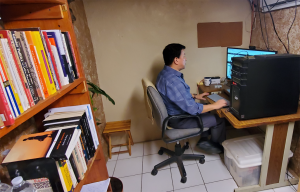Get Involved

 Become a Thought Partner
Become a Thought Partner
Partner with us to produce thought leadership that moves the needle on behavioral healthcare.
 Other options to get involved
Other options to get involved

Thank you!
We received your information and will be in contact soon!
Get Involved

 Grantmaking
Grantmaking
We fund organizations and projects which disrupt our current behavioral health space and create impact at the individual, organizational, and societal levels.
 Participatory Funds
Participatory Funds
Our participatory funds alter traditional grantmaking by shifting power
to impacted communities to direct resources and make funding decisions.
 Special Grant Programs
Special Grant Programs
We build public and private partnerships to administer grant dollars toward targeted programs.
 Program Related Investments
Program Related Investments
We provide funds at below-market interest rates that can be particularly useful to start, grow, or sustain a program, or when results cannot be achieved with grant dollars alone.
Get Involved

 Tia Burroughs Clayton, MSS
Tia Burroughs Clayton, MSS
Learning and Community Impact Consultant
Add some text here
 Alyson Ferguson, MPH
Alyson Ferguson, MPH
Chief Operating Officer
Contact Alyson about grantmaking, program related investments, and the paper series.
 Samantha Matlin, PhD
Samantha Matlin, PhD
Senior Learning & Community Impact Consultant
Contact Samantha about program planning and evaluation consulting services.
 Caitlin O'Brien, MPH
Caitlin O'Brien, MPH
Director of Learning & Community Impact
Contact Caitlin about the Community Fund for Immigrant Wellness, the Annual Innovation Award, and trauma-informed programming.
 Joe Pyle, MA
Joe Pyle, MA
President
Contact Joe about partnership opportunities, thought leadership, and the Foundation’s property.
 Bridget Talone, MFA
Bridget Talone, MFA
Grants Manager for Learning and Community Impact
Add some text here
When I was very young, I used to think that keeping your emotions to yourself was a cultural thing for men. Being from Guatemala, I know that in many countries of Latin America we men are taught from early on in our lives to hide our tears and to keep our emotions down at all times. Not doing so is tantamount to breaking the unspoken code of honor that helps men to fit into society and to gain respect. So goes the story: the more we hide our emotions, it seems, the stronger we are, or at least we are perceived to be.
As I write this, my daughter interrupts me to say, “Happy Anniversary!” to remind me that it’s been three months since I started working from home. Alone in my basement, I spend day and night glued to the computer, frantically trying to connect with people who count on me. I like to think that I have gotten used to it, but a strange feeling has been with me persistently and I still cannot put my finger on it. 
My friend Erick asked me the other day, “Why are you in the basement?”. That made me remember that the pattern men often follow is to hide their emotions. We retreat when we are not in control, perhaps because our manhood is being tested or repressed. Yet, this pulling back can be thought of as a form of strength, if we bring ourselves together and bounce back.
As an immigrant, I feel cornered. I ask myself how are men going to bounce back to when the pandemic subsides? The world is not the same anymore. Evil has been exposed in the disproportionate impact the pandemic has had on minority communities, not only in terms of the incidence of the virus but financially as well. While it is true that COVID-19 has brought an avalanche of new challenges to the most vulnerable, it’s also important to recognize that there is an incredible opportunity for us to work together on a new paradigm of immigrant integration; it’s not solely about immigrants but inclusive economic growth for people of all walks of life. 
The fact is that immigrant integration has never been just about immigrants. Without glorifying immigrants as economic superheroes, as Steve Tobocman has said, the truth is that immigrants who have made Philadelphia their home have been instrumental in the revitalization of the economy for the benefit of all. According to New American Economy, immigrants are 42.2% more likely to be entrepreneurs than the US-born population. This helps to explain why the majority of new storefront businesses in Philadelphia are created by immigrants, which in turn results in the creation of new jobs and a stronger tax base.
If immigrants are contributing to strengthening our troubled economy, it would follow that strategies must be employed to facilitate their integration. But even with a tone of support, immigrants still need to develop success strategies that can help them take on the opportunities at hand: strategies such as building their language skills, practicing strong leadership skills, understanding American workplace culture, developing social capital, learning how to transfer their working skills to the local economy, and continuing their education in the US.
The good news is that many of these strategies are also applicable to the US-born population. Think about it: when we consider multidimensional poverty, a great opportunity can come into focus. We can open a dialogue between immigrant communities – so heavily impacted by the pandemic – with Black and other minority communities that have been viciously denied their humanity by the racist structures that built the deeply divided America of today.
The pandemic will pass. I hope that in its aftermath, we men will bounce back to rethink our approaches to creating more inclusive economic growth.













